Bulletproof 30-Day Sleep Challenge
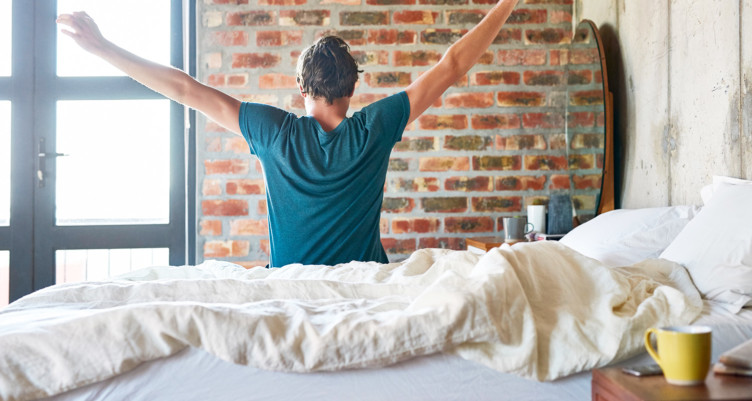
- Sleep better with the Bulletproof 30-Day Sleep Challenge. For the duration of the challenge, you’ll employ science-backed methods designed to help you sleep deeper, so you wake up refreshed.
- The Bulletproof 30-Day Sleep Challenge is laid out as a series of four steps. When implemented together, they’ll make you a champion at sleep, and as a result, a champion at life.
- The Sleep Challenge will help you sleep better by focusing on sleep hygiene, stress, diet, and tracking your progress.
- The order you do them in doesn’t matter — as long as you see to all four components before starting, you’re golden.
Download the Bulletproof Sleep Bundle now (includes Bulletproof Sleep Roadmap, sleep log and your printable sleep checklist) via the sign-up form below!
Raise your hand if any of these scenarios sounds familiar: You struggle to fall asleep, and once you do, you wake up multiple times a night. Or perhaps you’re out the minute your head hits the pillow, but you’re wide awake around 3 a.m., your mind racing. You’re left stumbling through your day, exhausted and half-dazed as you reach for yet another cup of coffee to keep you going. Being tired sucks. Sleep deprivation affects your performance, your relationships, and your mood. It also impacting your brain and its ability to recover and reset from the day. Sleep is the foundation of a long, happy, productive life.
Here’s the good news — there’s a lot you can do to improve your sleep. Instead of trying one or two strategies haphazardly, why not commit to the Bulletproof 30-Day Sleep Challenge? For the duration of the challenge, you’ll employ science-backed methods designed to help you sleep better.
In his new book “Game Changers: What Leaders, Innovators, and Mavericks Do to Win at Life”, Bulletproof Founder Dave Asprey says you want to treat your sleep performance “the same way you treat athletics or job performance.”
“Laying your head on a pillow means nothing if you suck at sleeping,” he writes. “Change how and where you sleep and track your sleep until you’re a world-class sleeper, or face the consequences at work tomorrow and in the hospital years from tomorrow.”
How the Bulletproof 30-Day Sleep Challenge works

The Bulletproof Sleep Challenge is laid out as a series of four steps. Think of each step as a key component to good sleep. When implemented together, they’ll make you a champion at sleep, and as a result, a champion at life.
You can start with Step 1 (Get your sleep hygiene and habits in order) first, and go from there. Or if you’d rather begin with Step 3 (Eat these foods), go for it. As long as you see to all four components before starting, you’re golden. The idea is that on day 1 of the challenge, you’ve put every element in place and you’re ready to hit the ground running (or in this case you’ll hit the pillow… sleeping?). Here are the four steps:
Step 1: Get your sleep hygiene and habits in order
Your first step to getting better zzzz’s is hacking your sleep habits. That includes getting to bed at a reasonable hour and creating the right sleep environment.
Get your sleep space ready

Before you do anything else in your quest for better sleep, take a hard look at your sleep space. Is it dark enough at night? How cool is your room? Go through your sleep area and check off the following points:
- Make it pitch-black: You want to sleep in a completely dark room. Invest in blackout blinds or curtains — it’s one of the best moves you’ll make for your health. Or try this free hack — simply use heavy duty large black trash bags or black plastic to cover your windows. Use tape or velcro to seal the edges — the goal is for zero light to escape. While you’re at it, tape over any other light sources in your room, including the small dots on your TV or your digital alarm clock. It sounds crazy, but trust that science supports it.
- Adjust the temperature: The ideal room temperature for restorative sleep is between 65 and 72 degrees (18 to 22 degrees Celsius). You can pick up an affordable room thermometer to keep track of temperatures.
- Block noise: Certain sounds disrupt sleep. Buy a pack of earplugs, or play a sound machine while you sleep. Some sound machines play white noise, which helps you sleep through sounds that might usually wake you. For an affordable option, download a white noise app to your phone.
Head to bed before your second wind
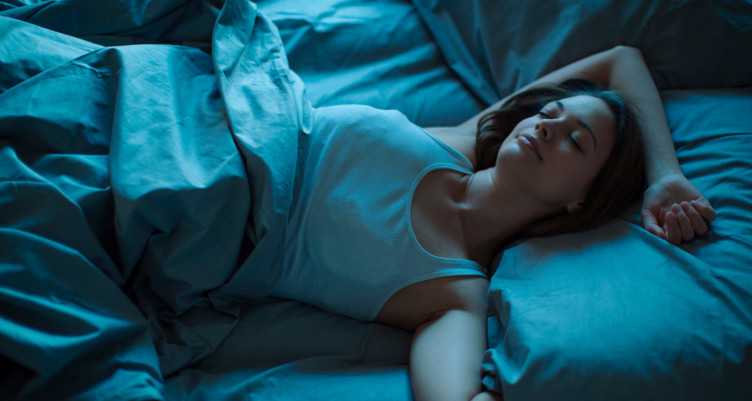
Aim to be in bed with the lights off by 11pm. Past that point and you catch a “second wind,” a surge of cortisol (your stress hormone) that can keep you awake until 2am. But listen to your body. If you start feeling sleepy at 9:30pm, go to sleep. Everyone’s body is different — some people are naturally early risers and tend to turn in early, while others do better staying up late and sleeping in. This difference in sleep cycles is known as your sleep chronotype. Learn more about your sleep chronotype and what an ideal sleep-wake schedule looks like for you. The key is to pick a bedtime and stick to is as best you can for the duration of the challenge. Structure and consistency is key to establishing good sleep habits.
Protect yourself from too much blue light
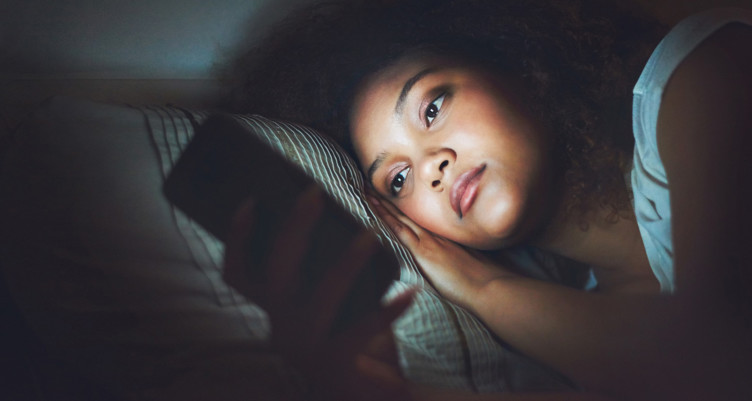
Blue light emits from your TV, computer, and smartphone screens, and it’s also used in energy-efficient light bulbs. Too much blue light messes with your brain’s production of melatonin — the hormone that tells your body when it’s time to sleep. Learn more here about how blue light is affecting your sleep, and the best ways to protect yourself from it. In a nutshell: Shut down electronic devices two hours before going to bed, invest in blue-light blocking glasses, and swap out your compact fluorescent bulbs (the curly ones) for red or amber bulbs.
No caffeine after 2 p.m.
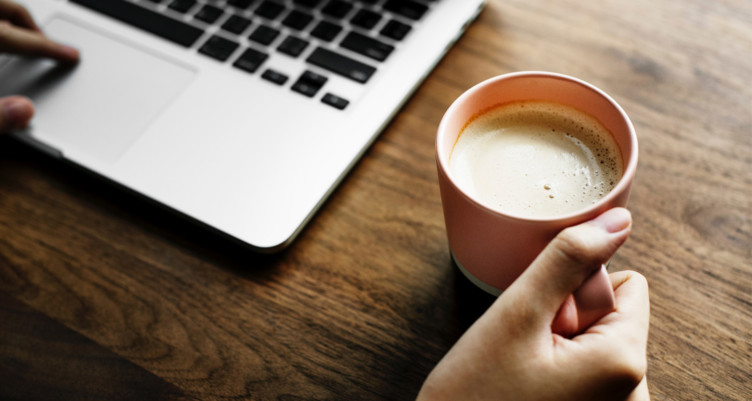
Coffee is a powerful tool in the morning — it gives you a surge of mental energy so you can get stuff done. But after 2pm, or eight hours before bedtime, it’s a no-go. Your brain needs time to wind down, but caffeine jolts it awake. That’s not what you need when you’re counting sheep and trying to drift off at 10pm.
Limit or eliminate alcohol

That glass of pinot noir may make you drowsy and have a sedative effect, but it can lead to night wakings. Alcohol disrupts your circadian rhythm and lowers your melatonin production. [1][2] It’s best to cut out alcohol for the duration of the challenge. If you do have a drink, check out this Bulletproof guide on how to enjoy the occasional drink while minimizing the harmful side effects.
Step 2: Lower stress and anxiety
You get into bed at a decent hour, you snuggle into your pillow, close your eyes, and… you can’t fall asleep. Your mind races and you ruminate endlessly about everything that happened during the day, and about what might happen tomorrow. You check your phone and realize half an hour has gone by, then an hour, and sometimes more. If this sounds like you, your levels of stress and anxiety are keeping you from sleeping. Your nervous system is activated and in fight-or-flight mode when it should be resting and recuperating. Learning to lower your stress is key to getting quality shut-eye.
Exercise
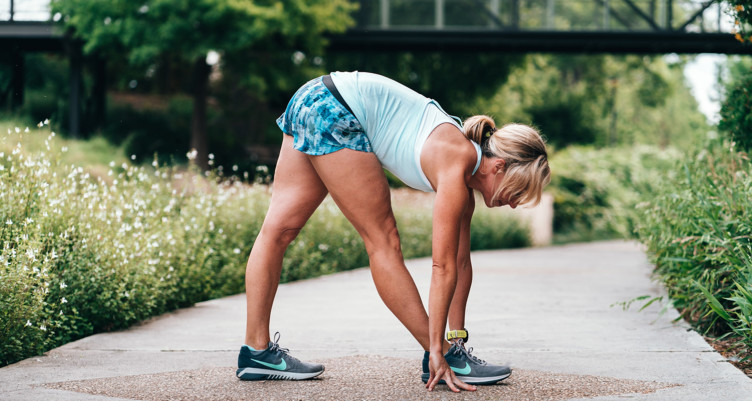
Exercise is a great release for stress and anxiety. Working out also helps you fall asleep faster, sleep for longer, and wake up less during the night. Learn more about the link between sleep and exercise here. It doesn’t matter what type of exercise you do — running, yoga, weight-lifting — as long as you’re moving your body and getting your heart rate up, you’re going to feel the benefits.[3] Figure out a weekly workout schedule with the help of this Bulletproof exercise guide.
A few things to keep in mind:
- More movement, more rest: When you’re exercising, you need to sleep more. Muscle tissue needs deep sleep to recover. If you’re working out more than twice a week, bring your bedtime forward by at least half an hour so your body has time to recover.
- Experiment with timing: Exercise is stimulating and releases cortisol. If you work out close to bedtime and you find you’re feeling too alert and struggling to fall asleep, try exercising earlier in the day. Experiment and see what works best for you.
Practice gratitude
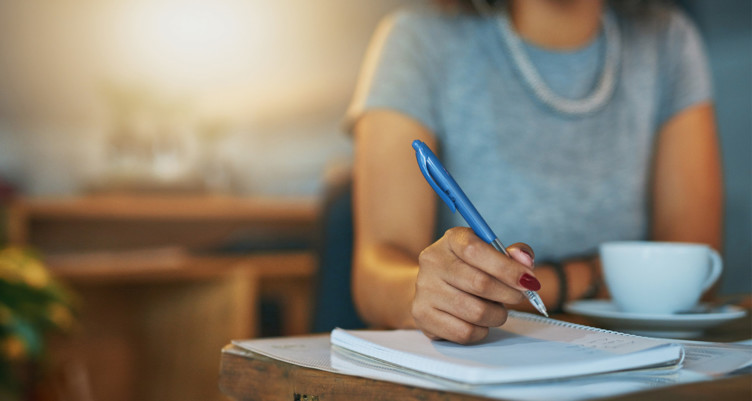
Gratitude rewires your brain, and builds neural pathways that lead to positive thinking. Numerous studies show that a daily gratitude practice can make you happier, less anxious, and more emotionally open. Learn more about the benefits of gratitude here.
For the duration of this challenge, think of three things you’re grateful for each morning, and write them down or say them out loud to a friend or family member. Alternatively, you can jot down your gratitudes before turning in for the night, which helps your brain wind down before sleep.
Meditate
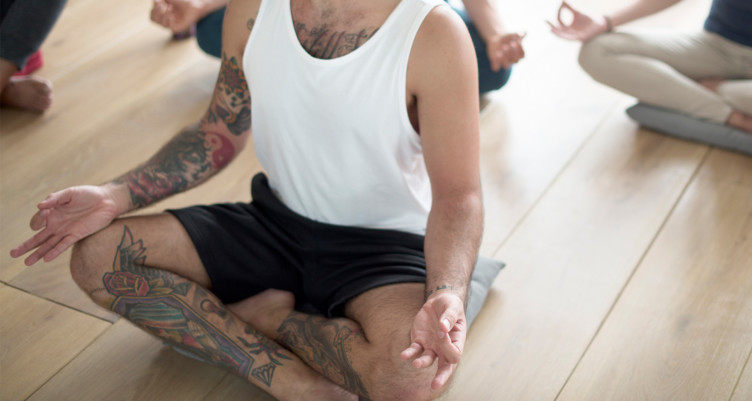
Dozens of studies show that meditation lowers stress and anxiety.[4][5] When you’re stressed or worried, your mind is usually hanging out somewhere in the past or the future. Meditation teaches you to remain in the present moment, and recognize that unproductive worries are merely thoughts that hold little or no power over you.
Like gratitude, meditation works at the neural level, activating areas that calm your nervous system.[6][7]
As part of the sleep challenge, incorporate a meditation into your daily life. Meditate for as little 5 minutes a day, with the goal of working up to 20 minutes. A good meditation for sleep is a body scan relaxation, which helps release tension before bed. Learn how to do a body scan meditation here. Or get started meditating with one of these five best meditation apps.
Have sex
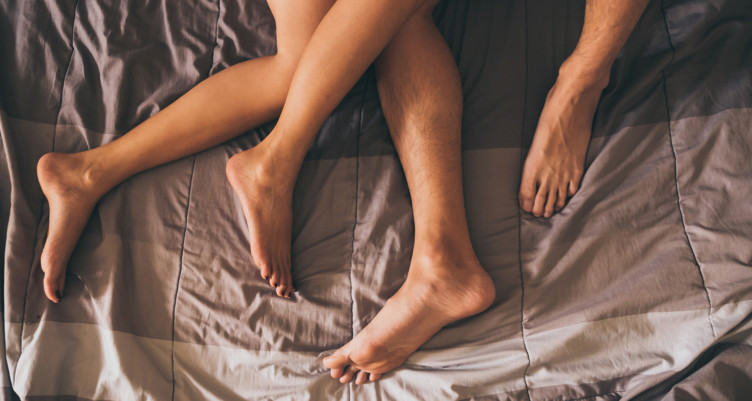
Yes, you’re too tired for sex, but here’s why you might want to do it anyway. There is some evidence that sex may help you fall asleep.[8] Having an orgasm boosts oxytocin, a hormone that triggers a sense of wellbeing and safety, and it lowers cortisol, making it easier to drift off. And if you don’t have a partner, no problem. According to the above study, masturbating to orgasm has a similar effect.
Step 3: Eat these foods
What you eat affects how you sleep (and that’s the case with food and most things). The right foods nourish and fuel your brain so it can rest and repair while you sleep. If you’re following the Bulletproof Diet, then your brain is already getting what it needs to get its job done. Here are added ways to take your sleep to the next level.
Eat wild-caught fish/Take krill oil supplements
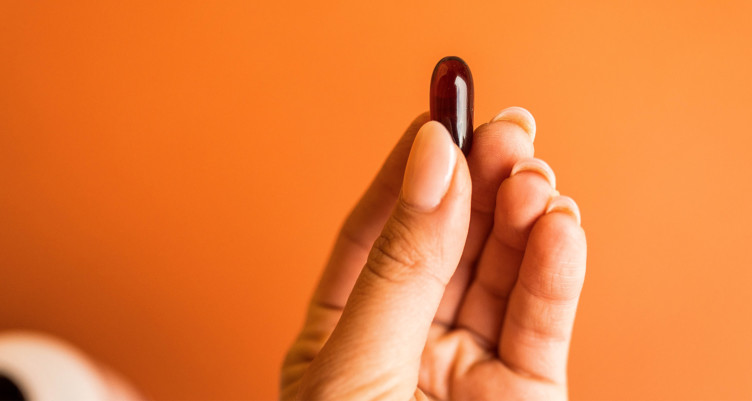
Frequently eating a dinner of fatty, wild-caught, low-mercury fish will help you sleep better. Fatty fish like salmon and sardines are chock-full of omega-3 fatty acids, which studies show improve sleep quality and help people fall asleep faster. Aim for at least 3 servings of oily fish per week.[9][10]
Try this Easy Baked Tandoori Salmon with Cauliflower Rice.
Alternatively, take two krill oil supplements (1,560 mg of omega-3’s), twice a day, with food.
Load up on good fats
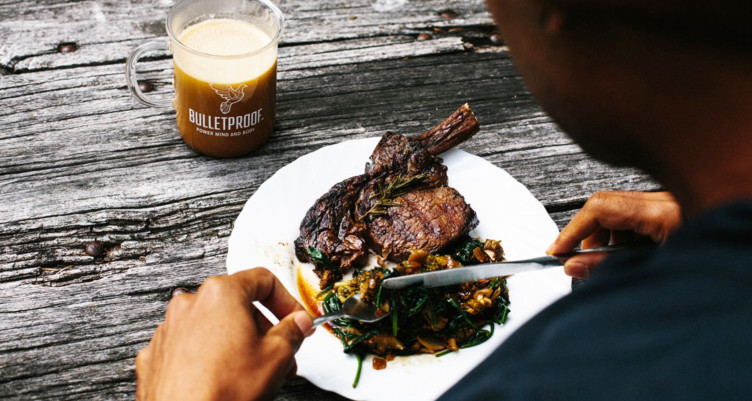
Good fats keep your energy stable and keep hunger at bay, even while you sleep. Take up to one tablespoon of a high-quality MCT oil such as Brain Octane Oil before bed. A bonus? MCT oil helps your body burn fat while you sleep. Learn more here about the benefits of MCT oil.
Another option — add pastured butter and grass-fed beef to your dinner menu. The saturated fats in these foods feed your myelin, the fatty sheath that insulates your brain’s wiring. A strong brain equals better sleep.
Raw honey before bed

Take 1-2 tablespoons of raw honey on an empty stomach before you turn in for the night. Your brain takes sugar from your liver called liver glycogen, and uses that for energy during the night. When your glycogen levels run low, your body goes into panic mode, thinking that it’s running out of fuel. This stress response can wake you up.
Raw honey makes liver glycogen, so having a touch of honey before bed replenishes your stores. The result? Stable energy for your brain to function at its best.
Take magnesium
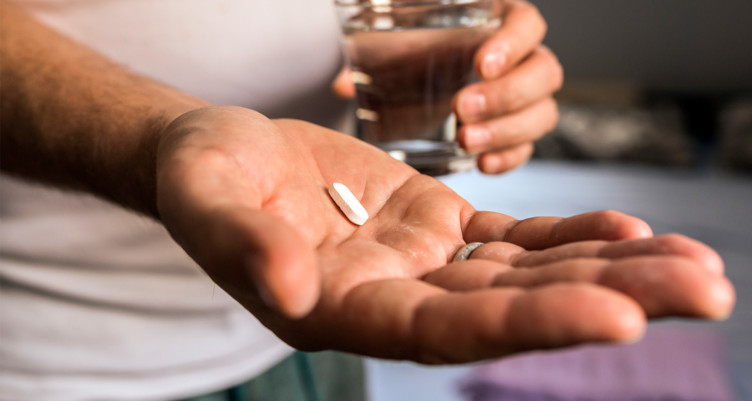
Science shows that supplementing with magnesium can improve sleep.[11] Load up your plate with magnesium-rich foods such as leafy greens, avocado, and wild-caught salmon, and snack on almonds and cashews. Better yet, supplement with 600 to 800 milligrams of magnesium a day. Another option — take an Epsom salt bath before hitting the sack. Learn more here about how to supplement with magnesium for better sleep. You can supplement your Magnesium intake while powering your brain by taking Bulletproof Forbose.
Step 4: Track your sleep
You’ve put all the sleep hacks in place — your sleep hygiene is in check, you’re tackling your stress and anxiety, and you’re eating the right foods. Your sleep should start to improve and hopefully you’ll soon be feeling great. But as any good biohacker knows, tracking your progress using science-backed methods tells you whether you’re really making progress. Knowledge is power and can help you further tweak your habits to get the best sleep possible. Enter sleep tracker apps and devices.
You have a range of sleep trackers to choose from, depending on your budget and how advanced you want to get. For the duration of the challenge, pick one from the list below. You can always experiment with a different tracker at a later date.
Sleep log
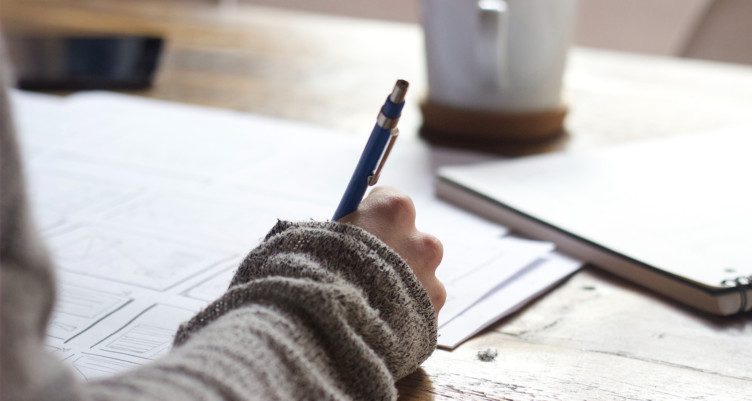
The sleep log — aka the old school way of keeping records — is a no-fuss method for tracking your sleep. It involves a lot more than simply jotting down what time you went to sleep and when you woke up. A sleep log considers all the factors that could be impacting your sleep, including when you ate dinner, whether or not you exercised, and how much alcohol you chugged (ehem, sipped). Get a free sleep log by signing up at the bottom!
Sleep apps

Download an app like SleepScore or Sleep Cycle. Sleep apps give you a range of data about your sleep — when you dozed off, your sleep patterns, and advice on how to improve it. Some will also sound an alarm (a gentle one!) to wake you up at the point when you’ll feel the least groggy.
Wearable sleep devices
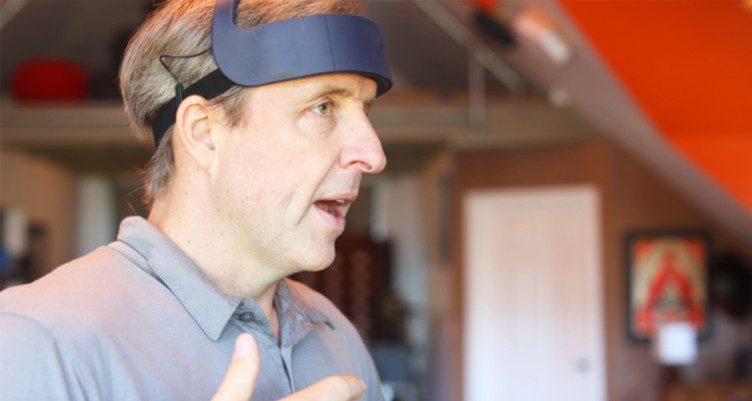
These are an investment, but sleep devices, including wearable rings and sleep headbands, give you the most comprehensive and detailed analysis of your sleep. Learn more about how sleep headbands work here, and a review of the top sleep wearables on the market, including the OURA ring.
Sleep hacks for added benefits

You can view these sleep hacks as nice-to-have add-ons. Implement some or all of them if they resonate with you.
Sleep supplements such as magnesium and GABA help relax you and deepen your sleep. Learn more about the different sleep supplements here.You can also visit the Bulletproof Sleep Solutions page to learn more about how Bulletproof can help you get to sleep faster and get more restful sleep.
Weighted blankets soothe the nervous system and ease insomnia. Find out more about weighted blankets and their benefits.
Sleep at an incline to help your brain flush out gunk that has built up during the day. Learn why raising the head of your bed by a few inches improves sleep quality.
Adjust your sleep position to get the most out of your zzzz’s. Read this comprehensive guide on the different sleep positions and the pros and cons of each.
Sign up for early access to sales, product launches, the latest Bulletproof news and more!




